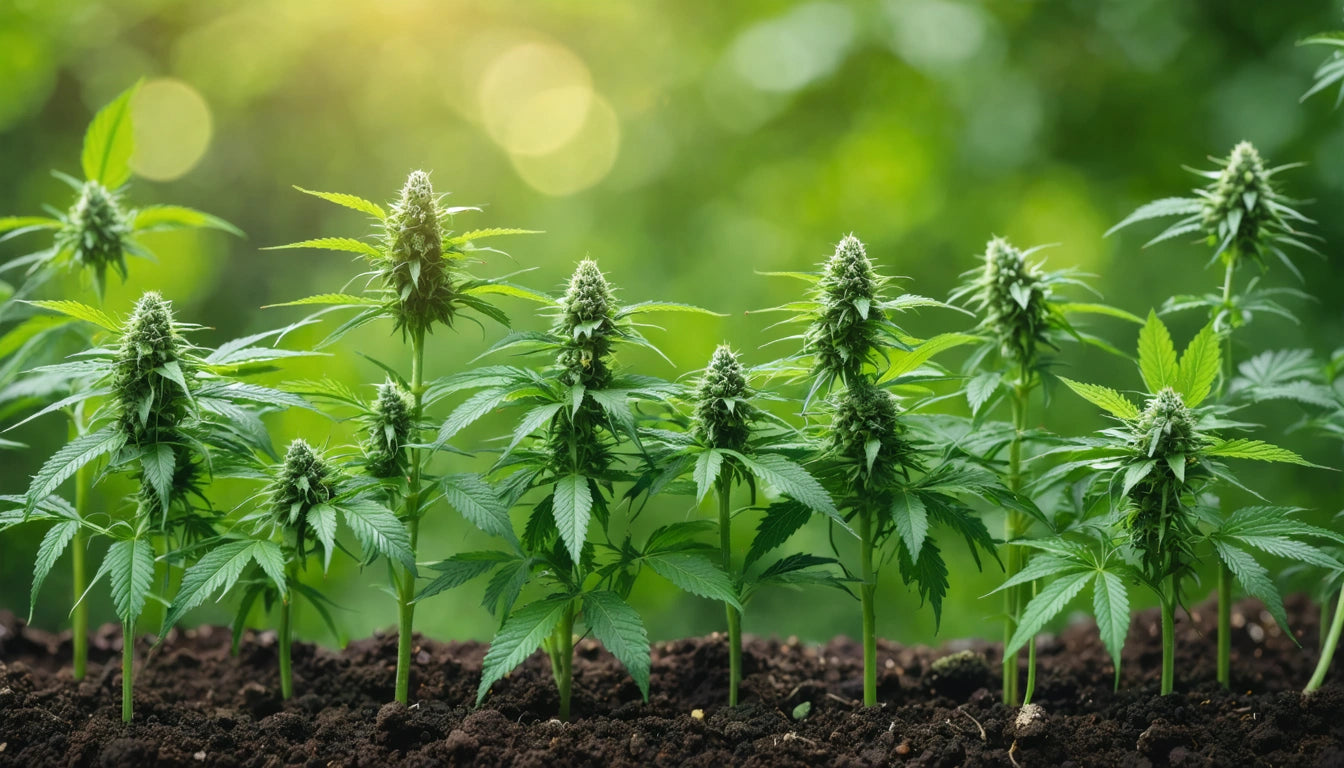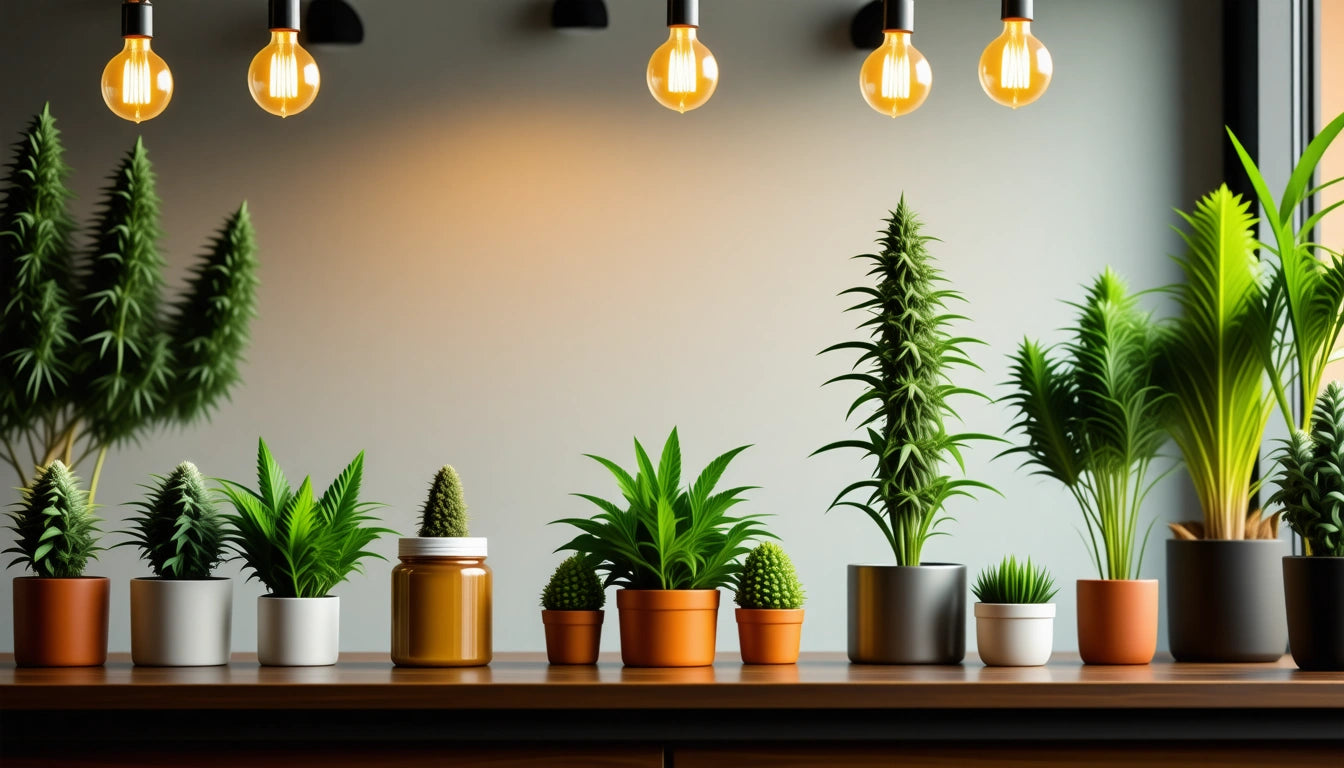Table of Contents
Why Are My Plants Drooping: Common Causes and Solutions
When you notice your plants drooping, whether they're cannabis or tomatoes, it can be concerning. Drooping leaves are a plant's way of communicating distress, and understanding the underlying causes is crucial for effective treatment. This guide explores why your weed plants might be drooping and provides practical solutions to revive them.
Understanding Plant Drooping: Signs and Symptoms
Plant drooping, also called wilting, manifests as leaves and stems that lack rigidity and hang downward. In cannabis plants, you might notice the entire plant looking sad and lifeless, with leaves pointing downward instead of reaching for light. Understanding what your leaves are telling you is the first step in diagnosing the problem.
For tomato plants that are drooping, the symptoms may include curled leaves, yellowing foliage, or stems that can't support themselves. Both cannabis and tomato plants share similar causes for drooping, though their specific sensitivities may differ.
Overwatering Issues: The Most Common Culprit
Signs of Overwatering
Overwatering is the most common reason why weed plants droop. When soil remains constantly saturated, roots can't access oxygen, leading to:
- Heavy, water-logged soil
- Leaves that feel firm yet droop
- Yellowing of lower leaves
- Slow growth despite adequate nutrients
Cannabis plants are particularly sensitive to overwatering, especially during the vegetative stage. As noted in this guide on common cannabis issues, overwatered plants may initially appear healthy but quickly develop problems if the situation isn't corrected.
Solutions for Overwatering
To remedy overwatering:
- Allow soil to dry out between waterings
- Ensure proper drainage in pots and containers
- Consider using specialized watering equipment that provides consistent, measured irrigation
- Add perlite to heavy soils to improve drainage
Underwatering Problems: When Plants Need More
While less common than overwatering, underwatering can also cause weed plant leaves to droop. Underwatered plants show:
- Dry, crispy leaf edges
- Thin, papery feeling leaves
- Soil pulling away from the sides of containers
- Slow recovery when water is finally provided
If you're wondering why your weed plant is wilting despite regular care, check the soil moisture at different depths. Surface soil may appear moist while deeper layers remain dry, especially in larger containers.
Lighting and Temperature Factors
Improper lighting and temperature extremes can stress plants, causing them to droop as a protective response.
Light Stress
Cannabis plants may droop when:
- Light intensity is too high (light bleaching)
- Lights are positioned too close to the canopy
- There's sudden change in light schedule
For indoor growers, maintaining proper distance between lights and plants is crucial. As plants grow, adjustments are necessary to prevent light stress.
Temperature Issues
Both cannabis and tomato plants will droop when exposed to temperature extremes:
- Heat stress (above 85 °F/29 °C for most strains)
- Cold shock (below 60 °F/15 °C)
- Rapid temperature fluctuations
Maintaining stable temperatures is essential for preventing stress-related drooping, as explained in this comprehensive growing guide.
Nutrient Imbalances and Deficiencies
Nutrient problems can manifest as drooping, particularly when combined with discoloration or unusual growth patterns.
Common Nutrient Issues
- Nitrogen toxicity: dark green leaves that claw downward
- Phosphorus deficiency: drooping with purple stems
- Calcium deficiency: drooping with twisted new growth
- pH imbalance: preventing proper nutrient uptake
For cannabis plants, maintaining proper pH (5.8-6.3 for hydroponic systems, 6.0-7.0 for soil) ensures nutrients remain available. When diagnosing why weed plant leaves are drooping, always check for accompanying symptoms that might indicate specific deficiencies.
Pest and Disease Considerations
Pests and diseases can cause plants to droop as they sap energy and damage tissue. Common culprits include:
- Root aphids or fungus gnats damaging root systems
- Spider mites causing leaf damage and stress
- Root rot from pathogenic fungi
- Powdery mildew affecting photosynthesis
Regular inspection of both foliage and root systems helps catch these issues early. As this resource on leaf curl explains, many pest problems first manifest as subtle leaf changes before progressing to full drooping.
Reviving Your Drooping Plants: Practical Solutions
When faced with droopy plants, follow these steps for recovery:
- Assess moisture levels first, as water issues are most common
- Check root health by gently removing a plant from its container
- Evaluate recent changes in environment, feeding, or care routine
- Implement targeted solutions based on your diagnosis
- Monitor recovery closely without making multiple changes simultaneously
For severely affected plants, recovery takes time. Cannabis plants generally show improvement within 24-48 hours once the underlying issue is addressed. Tomato plants may take slightly longer, especially if root damage has occurred.
Prevention remains the best approach. Establishing consistent watering schedules, maintaining stable growing environments, and learning to recognize early warning signs will help keep your plants healthy and upright.
By understanding the various reasons why your weed plants might be drooping, you'll be better equipped to provide the care they need. Remember that plants are resilient, and with proper attention, most drooping issues can be successfully resolved.











Leave a comment
All comments are moderated before being published.
This site is protected by hCaptcha and the hCaptcha Privacy Policy and Terms of Service apply.